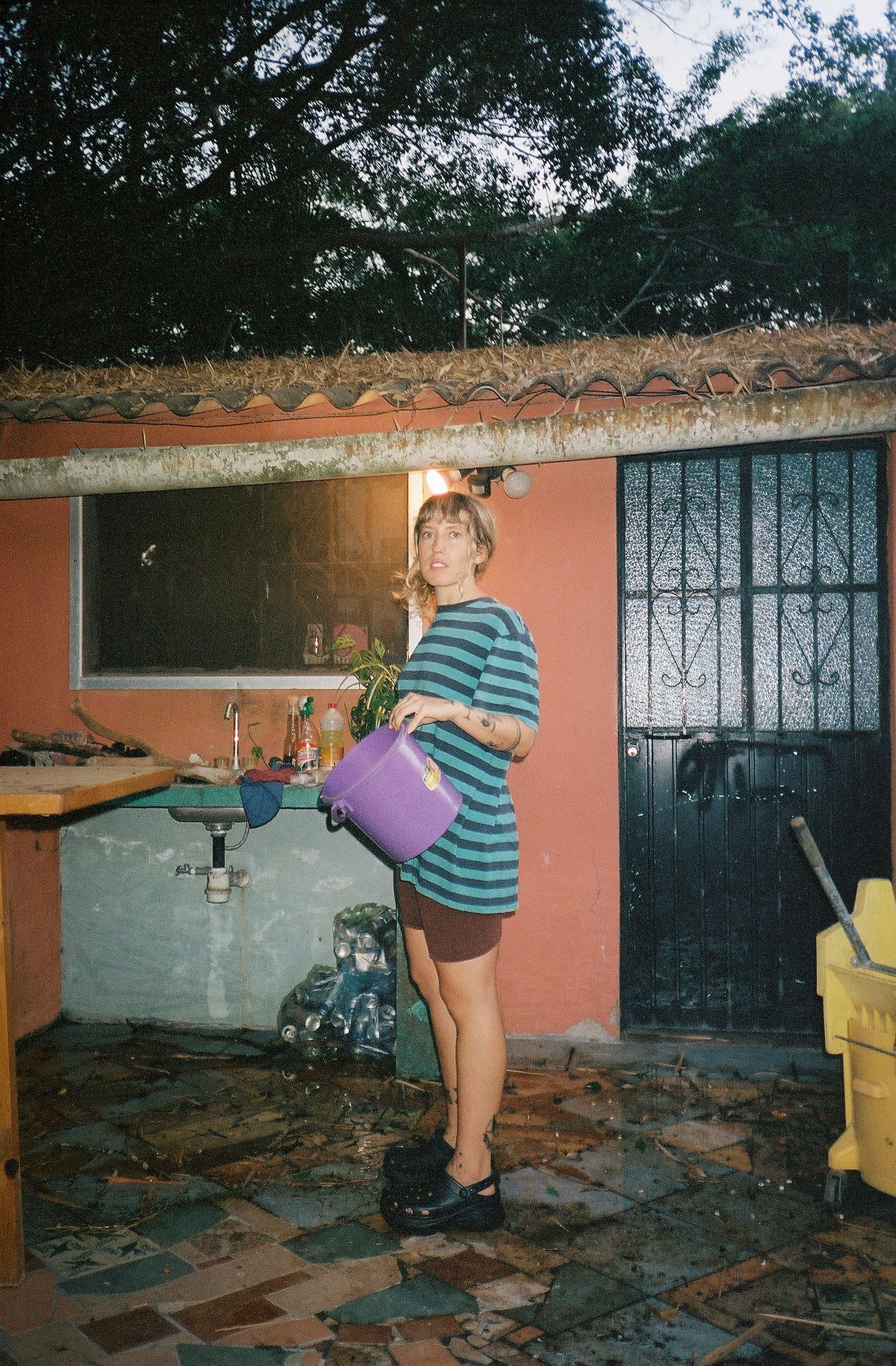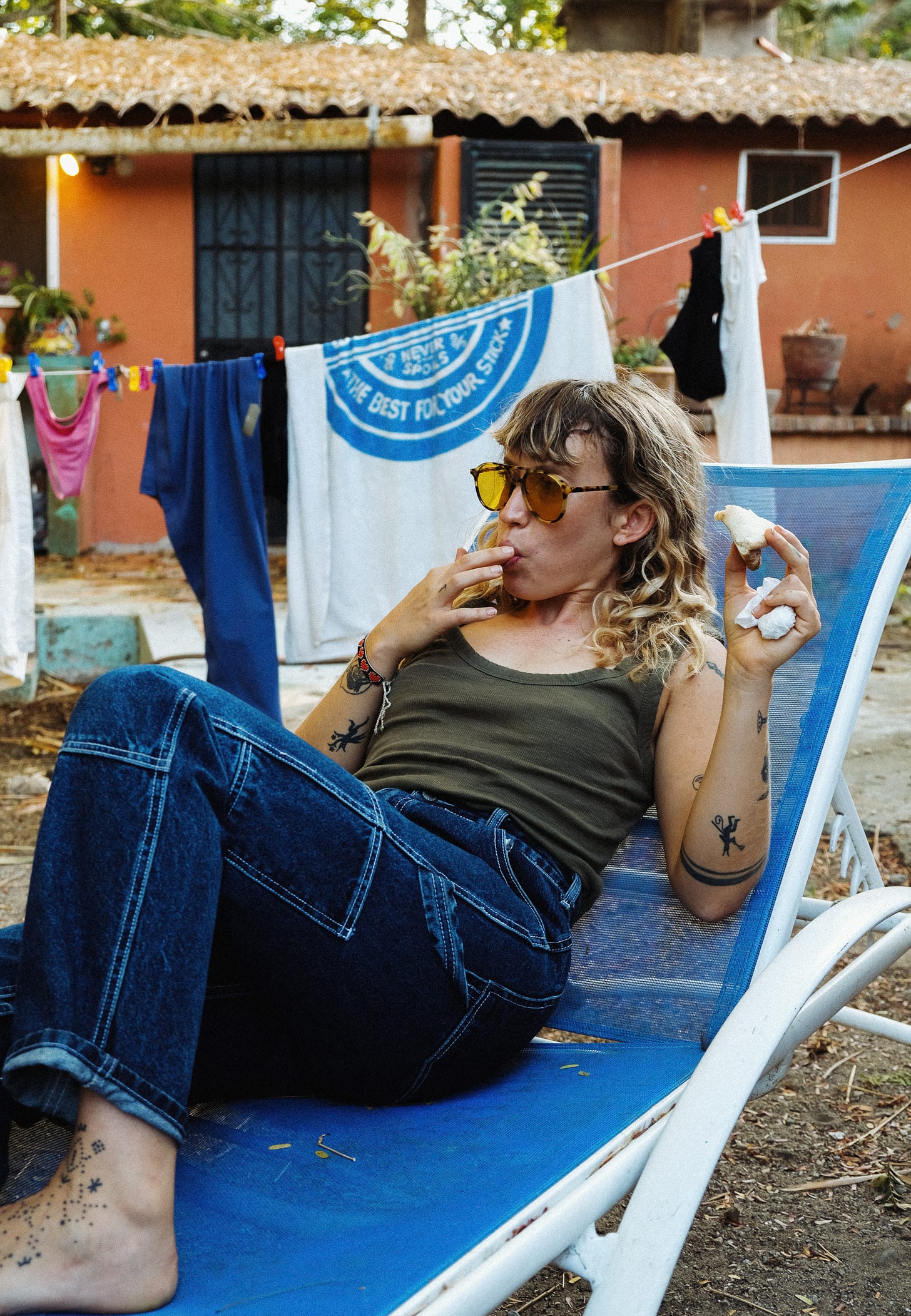“I’m willing to bet that most of my relatives operate from the belief that we must suffer for what we have, that rest is only earned, and that dreams are for other people, people who aren’t busy working as hard as they are.”
Dear reader,
One of my favorite writers, Melissa Febos, says that we shouldn’t write things to hurt other people. Today’s letter wasn’t written in order to hurt someone, but that doesn’t mean that what I have to say won’t hurt somebody anyway. What’s funny is that what prompted me to write this letter was precisely that: receiving a different letter of words strung together that were definitely meant to hurt me.
My family thinks I’m weird. I’m not on the group thread with my mom, my brother, his wife, nine cousins, and some aunts and uncles, where the engagements, baby bumps, and gender reveals are announced. I don’t get invited to things.
I estranged myself when I left the east coast, something that nobody else in my family has done yet. The chasm widened when I decided to pursue work outside of an office and to abstain from marriage, also things that nobody else has done.
At times it feels very obvious that I’m the only one who strays, but the assumptions that get made and the blatant misunderstandings on both sides are par for the course when it comes to family dynamics. I don’t sweat it. Until recently, I’ve never suspected animosity because of my differences. I certainly didn’t know how easily my choices act like a target on my back: the scapegoat.
In March, I wrote everybody in the family an email asking to borrow $250,000 to buy a piece of land in California. I was in a state of hormonal mania, something I experience every month in the days leading up to my period. Usually it manifests as a deep desire to nest, cook, clean, and fix everybody’s problems. On a good month, I use these days to take over the kitchen and make scattered, uncomplimentary dishes in excessive quantities for my landmates (two casseroles of vegan mac & cheese, a vat of chicken chili verde over rice, slaw).
On a bad month, the mania tells me to invest in long-term housing security — like yesterday! I rise in a fever and decide that I should become my mother’s caretaker full-time, and subsequently spend hours house-hunting on Zillow for a home for two.
March was the latter kind of month. I fretted over ways to make my very sad and isolated mother happy. One morning, I woke up at T.’s house, and in a caffeinated frenzy, opened dozens of tabs on my computer and convinced myself I needed to buy a property somewhere I’ve never been in northern California. It seemed too good to be true: four acres of land nestled under redwood trees, two miles from the coast, and with city water and a well — all for $300,000.
“Paradise Found! Private park-like setting, beautiful, gentle slopes, lots of redwood trees. There is a mobile home on property with current registration and is hooked up to water, electric, propane, and telephone. This property has city water and a well!”
Mere minutes had passed since I first opened the listing, but the property seemed like a “jackpot”, one I’d never come by again. I felt I had to act fast; I was possessed by a dogged urgency. I envisioned it perfectly: I’d live in a trailer, and my mother would live out her days in one right next to it. She wouldn’t have to suffer New England winters anymore. Most importantly, she wouldn’t be alone. She’d be with me, her favorite person
By noon, my real estate agent had spoken with the broker of the property, and we learned that the land was in fact unique, but not in the way I initially imagined. For reasons I still don’t entirely understand, banks would not loan on the property, and so chipping my life away paying a conceivably low mortgage would not be an option. The property was cash only, to be paid in full.
My heart sank when I realized the impossibility of the situation, as neither myself nor anybody in my life has hundreds of thousands of extra dollars. “I’ve had clients reach out to everyone in their family for personal loans before,” my agent said to me. “Do you have anybody you can talk to?” she asked.
By late afternoon, I had drafted an email-meets-business plan to fifteen of my relatives asking for help buying The Jackpot. I was transparent about my financial growth over the last year, despite it not feeling safe to do so. I knew I had to include my numbers because they are the only proof that I am worthy of loaning to, and am not currently the starving artist they feared I’d be. Look, I made money. Please give me more of it and I will pay you back. I thought they’d be happy for me. Proud.
I knew I was asking for a lot. I understand the money most people don’t have. Regardless, I was motivated by the belief that all big dreams start out sounding totally insane and improbable. My feeling was that if I didn’t ask everyone for help when I needed it, I might not learn that somebody actually wanted to help. “What’s the worst people could say? No?” replied a friend when I asked him if what I was doing was okay. I thought it was worth the risk, too.






